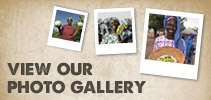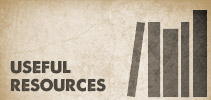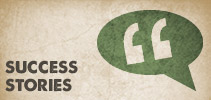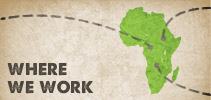The ‘One Cow Per Poor Family’ programme in Rwanda
“The main benefit of my goats so far is manure. It is enabling me to grow more food: cabbages, carrots, green peppers, maize and sunflowers. Once my family has eaten, I share my vegetables with my neighbours, and still have a surplus to sell. I will also sell my goats’ kids when they are old enough.” Hosea Ngiruwonsanga, farmer, Rwanda
Livestock is a productive asset on the farm, playing an important role in providing protein and income from the production and sale of milk, meat, eggs and offspring. Manure can be utilised through composting as a very cost-effective fertiliser and soil conditioner, revitalising soil quality, fertility and its water retention capacity. Livestock ‘assets’ are also often seen as ‘walking banks’ to be sold in times of financial crisis to fund health care and education costs in particular. The following case study shows how increased access to livestock increases the capacity of smallholder farmers to generate food and income.
In Rwanda, vulnerable families, including genocide survivors, widows, orphans, people with disabilities and people living with HIV/AIDS, are acquiring productive assets in the form of livestock through the government’s ‘One Cow Per Poor Family’ programme. These groups are provided with an integrated package of assistance, starting with participatory training that strengthens the social structures and gender equity of the group. At the same time the groups are given in-depth training in sustainable organic agriculture, concentrating on vegetables, maize and beans for human consumption; energy and protein forages (plants and trees) for livestock; trees for firewood and construction, using home-made compost for fertiliser, and welfare friendly livestock husbandry and housing that allows for good livestock management and manure and urine collection for soil fertility. Seeds and planting material are procured and shared within groups and with other groups.
Farmers are given livestock once adequate forage and housing are in place and approved. Cross-bred dairy cows or locally sourced meat or dairy goats and/or beehives are placed, depending on farm size and farmer preference. Group members receive ongoing support, training and mentoring that enable livestock, groups and farms to be healthy and productive.
A recent evaluation found that over 88% of farmers involved in the programme had increased their income through milk sales and by growing more vegetables using composted manure. All farmers commit to passing on the benefits they receive, such as their cow’s first-born heifer and the new skills that they have learned, to others thereby multiplying the impact of the programme.
For more information, see www.sendacow.org.uk/our-work and click on Foundation Series.



